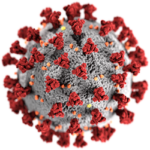
Partnership with Northeastern University researcher and Stantec to offer early detection of COVID-19 spread in city
Mayor Joe Curtatone announced today that Somerville is launching a community wastewater testing program to monitor for the coronavirus and provide earlier detection of increased spread of COVID-19. In partnership with Northeastern University Asst. Professor Ameet Pinto of the Department of Civil and Environmental Engineering and Stantec, the city’s on-call engineering firm for sewer work and design, the program is designed to reveal COVID-19 hotspots up to one to two weeks earlier than current individual testing.
“Adding wastewater testing to our COVID-19 interventions is like adding a smoke alarm to your house. It provides a warning before the problem gets out of control,” said Mayor Curtatone. “This new tool will greatly enhance our ability to detect and contain COVID-19 clusters in Somerville as they emerge. We all know now that widespread testing and contact tracing is critical to controlling the spread of the virus, and the earlier and the more comprehensive the testing is, the better we can reduce virus spread. This program will give us a head start.”
“People infected with the coronavirus, including those who don’t have symptoms, can shed the virus in their urine and feces well before many know to go for testing or get their results back. Asymptomatic persons may never get tested. To aid in early detection, experts including the CDC have called for wastewater testing as an early warning system. It can be especially helpful for vulnerable populations and targeted locations such as senior care facilities or college campus areas,” said Director of Health and Human Services Doug Kress. “With the results, we will be able to better target education, individual testing, and other resources to affected areas.”
In collaboration with the city’s emergency response leadership, the initiative was led by the city’s Infrastructure and Asset Management team, which usually is concerned with building and maintaining the city’s sewers — not testing their contents for the virus. It is a bootstrap effort that reflects how city staff across departments have mobilized to take on unusual duties and develop creative solutions – often with community partners – to support the city’s COVID-19 emergency response.
“We are all hands on deck here. The Mayor asked my team to reach out to companies doing wastewater testing for the coronavirus this spring, but the sampling logistics were restrictive, and the costs were prohibitive,” said Rich Raiche, Director of Infrastructure and Asset Management. “So we began looking at other options and fortunately connected with Professor Pinto, who has the lab equipment and capability to do this testing affordably via resources at Northeastern University. Meanwhile, Stantec is already working on improvements to our sewers and they were eager to step up and support the testing by managing the sampling effort.”
“Local testing is key because it can best identify sources such as a school or neighborhood,” added Raiche. “The virus breaks down as it travels in sewer water, so the most accurate results come close to the source. But most cities and towns can’t afford to bring in wastewater testing companies or design a sampling program that yields reliable results. We’re hoping this will not only support Somerville’s efforts but also model a solution that other municipalities could replicate as well.”
The project will also sequence the genes of SARS-CoV-2, the virus that causes COVID-19, which tends to accumulate mutations over time and may provide useful information on the origin of COVID-19 clusters. This data will be shared with researchers and the CDC wastewater testing program. The MWRA is conducting wastewater testing on a regional level as well. The City of Somerville is not aware of another municipality in the Commonwealth conducting local and regular wastewater testing for the virus in its sewer system.
“We were able to develop the capacity for sewage-based monitoring of SARS-CoV-2 rapidly over the summer due to strategic investments as part of University-wide efforts in response to the COVID-19 crisis,” said Ameet Pinto, Assistant Professor in the Department of Civil and Environmental Engineering at Northeastern University. “The ability to partner with the City of Somerville and Stantec is an exciting opportunity to extend the impact of this investment beyond the Northeastern University community.”
Testing is expected to begin this week. Each week, up to ten samples will be collected and locations will vary. Areas expected to be initially prioritized include the Tufts University neighborhood, areas with high concentrations of vulnerable residents or high density, and public schools once on-site classes begin. The approach is expected to evolve over time.
“By applying our in-depth knowledge of Somerville’s sewer system, we’re able to help public health officials connect the dots between the lab results and the neighborhoods contributing to these outcomes,” said David VanHoven, senior principal with Stantec. “This detection tool will identify neighborhood trends to support the city’s mission in mitigating the risk of COVID-19 in the community.”
By nature, wastewater testing results are anonymous. The testing is not able to identify individuals as sources. All privacy protocols and measures similar to those for handling individual test results reported to the Somerville Board of Health by the Commonwealth will also be adhered to.
Wastewater testing is the latest addition to Somerville’s COVID-19 Mitigation Plan. Among other initiatives in collaboration with a range of partners, Somerville announced communitywide free COVID-19 testing for residents in April, joined Revere and other cities to offer safe quarantine and isolation options, launched a free mobile testing unit in June, distributed 100,000 free face masks to community members, and instituted face-covering requirements before the statewide order.
For more information and regular COVID-19 updates, visit www.somervillema.gov/coronavirus and sign up for city alerts at www.somervillema.gov/Alerts. We urge you to sign up for every alert method you are able to receive: phone call, text, email. Also follow FB.com/SomervilleCity and @SomervilleCity.















Reader Comments